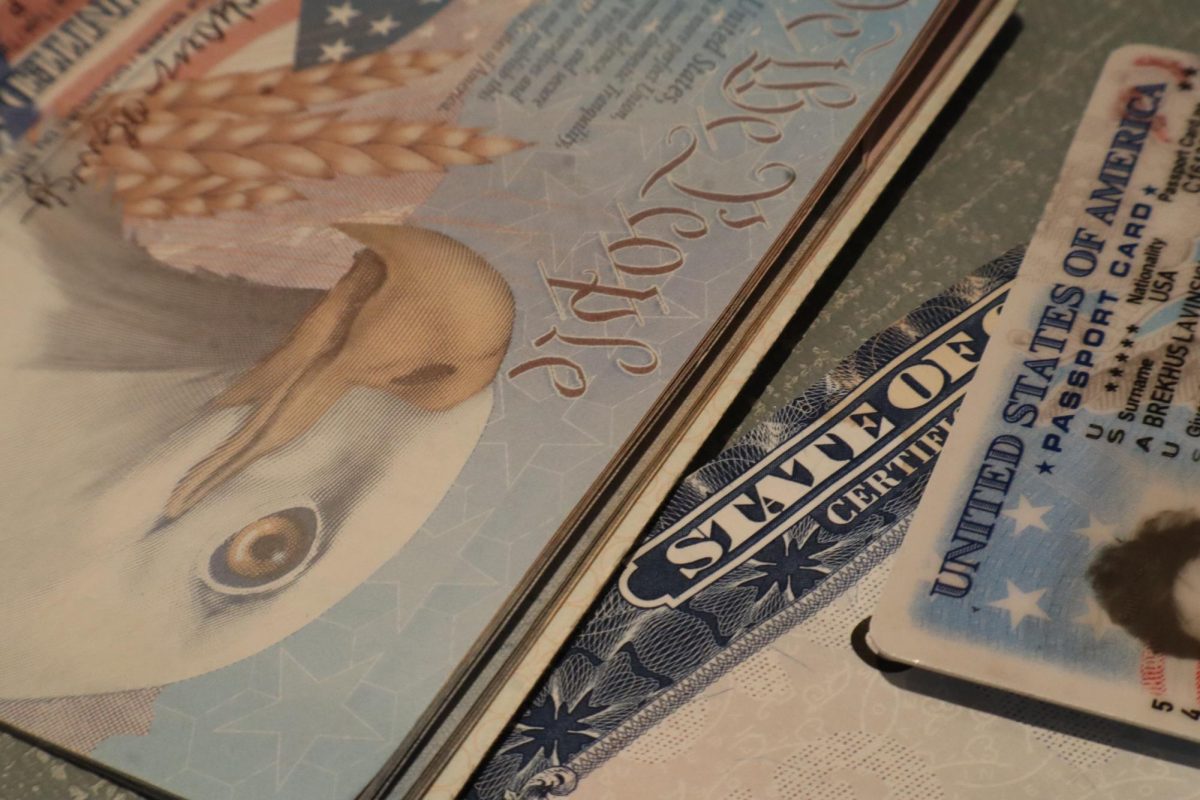On Aug. 29, Redwood High School released its new regulations regarding e-bikes. The rules require students to register with Dean of Students Tyrone Robinson in room 115, where they can obtain an e-bike permit ID tag. Students will only be able to register class 1 and class 2 e-bikes, the two legal types for children under 16. The decision came after recommendations from the County of Marin and the Marin County Bike Coalition (MCBC).
Dean of Students, Tyrone Robinson clarified that the policy was not made solely by Redwood, but came from outside recommendations.
“[The new policy] came from the county, and local law enforcement also had something to do with [the policy.] They saw an increase in the number of e-bikes, and also accidents in [Marin] related to e-bikes. The [MCBC] also had a lot of guidance that came out around e-bikes,” Robinson said.
Gwen Froh, the Marin Safe Routes to School Director and MCBC director of Education and Encouragement, added that the policies were not only in response to rising e-bike sales and accidents but also from misleading advertisements of the bikes.
“There’s a problem with [e-bike] manufacturers putting out devices that aren’t e-bikes, but actually e-motorcycles. Data from the Department of Public Health has shown that these [e-motorcycles] are most dangerous for students ages 10-15 who have had

severe injuries and crashes,” Froh said. “The most popular [e-motorcycles] in Marin are class 2 throttle devices. In correlation with that, you have students ages 10-15 on these [e-motorcycles] who are five times more likely than any other age group in [Marin] to crash.”
Froh compared the severity of e-motorcycle crashes to those of conventional motorcycles being driven on roadways, with severe injuries occurring in these accidents.
“[E-motorcycle] injuries are so severe for [students ages 10-15] that they result in severe head trauma even though the student might be wearing a helmet, or pelvic injuries where students might have permanent damage,” Froh said. “The problem is that 10-15-year-olds do not have the experience or skill set to navigate our roadways and are riding devices that go two or three times faster than a [regular] bike.”
Freshman Rex Kohner believes that students need education to have the experience and skill set to navigate our roadways. Kohner’s parents made him take a driver education course before buying an e-bike, but Kohner understands this isn’t always the case.
“I think it would be nice [if parents educated their kids about road safety] but realistically, they aren’t gonna educate their kids,” Kohner said.
Robinson agreed with the sentiment that e-bikers, especially unlicensed youth, should undergo education before being able to ride on roadways.
“If it were up to me, there would be a course that we would mandate. I think getting [an e-bike license] should be something like taking a single course, where you automatically get your license. Then you’ll learn a lot about safety and how to ride,” Robinson said.
For Kohner, the biggest challenge in his mind isn’t the e-bikes themselves, but rather the gray areas and loose laws that apply to e-biking.
“Near Ace Hardware, there is a bike lane and a sidewalk. When I ride in the bike lane, I get honked at. But if I’m on the sidewalk, I get yelled at,” Kohner said.
While many might assume that new regulations were introduced to curtail dangerous behavior on e-bikes, Froh says the recommendations were mainly intended to crack down on dishonest manufacturers.

“One thing I think there is a lot of confusion about is what’s legal and what’s not legal. I think it’s important people understand that nobody is trying to take your e-bikes away,” Froh said. “We are going after the e-bike manufacturers. In the meantime, while we are trying to get the manufacturers to be accountable, there are a lot of illegal e-bikes. We really care, I really care, and I really empathize with the fact that these e-bikes are being purchased unknowingly. Students are not to blame, parents are not to blame.”
Robinson claims the new system will not be enforced immediately, but will begin being introduced later this year by school administrators and police.
“Once [Redwood] has given out all the e-bike permits, we’ll start doing sweeps here and there, probably twice a month. I also believe the police will be coming through just to do a check. Then we will start locking [unregistered] e-bikes with a note that will say ‘Come to office 115 to register your e-bike.’ Basically, it’s kind of just forcing your hand, but all centered around safety,” Robinson said.






![“[The Scotty Lapp Memorial Skatepark signifies that] Scotty’s energy, fun vibes and spirit will live on forever,” Jason Lapp said.](https://redwoodbark.org/wp-content/uploads/2025/03/346E3938-2C25-4CBB-9D6B-0ED4BD4A242A_1_105_c.jpeg)

